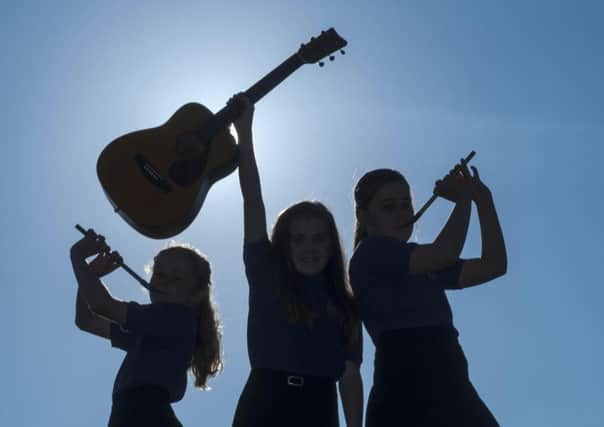The Royal National Mod kicks off in Inverness


The Royal National Mod (Am Mòd Nàiseanta Rìoghail), is one of the world’s oldest national Gaelic organisations and a nine-day spectacular will see more than 3,000 competitors compete across 200 events in Highland dancing, Gaelic music as well as song, sport, literature and drama.
Organised by An Comunn Gàidhealach, the festival runs until Saturday 18 October and is expected to bring up to £2.5 million to the local economy as visitors and competitors gather from across Scotland and the world.
Advertisement
Hide AdThe Mod began yesterday with the presentation of the coveted Gaelic Ambassador of the Year award to BBC presenter Kirsteen MacDonald at a special reception – previous winners include writer and broadcaster Ruairidh Maclean and singer Julie Fowlis.
Inverness-born Kirsteen was presented with her prize by the government minister for Scotland’s languages, Alasdair Allan.
The former Millburn Academy pupil has hosted radio and television including Dè a-nis?, An Là and Seachd Là on BBC Alba and is BBC Scotland’s first Gaelic-speaking weather presenter
She said: “Being recognised as the Scottish Government’s Gaelic ambassador is something very special to me as the language has been a huge part of my life, from Gaelic medium education to using it on a daily basis in my place of work and in many other aspects of my life too.”
Following the award, the Mod celebrated its arrival in the city with a torchlight procession attended by hundreds of people. This was followed by the opening concert at Eden Court featuring Gaelic band Skipinnish and emerging stars Gria.
Advertisement
Hide AdJohn Macleod, president of An Comunn Gàidhealach, then used his annual address to highlight how interest in Gaelic language and culture was growing, in particular in cities such as Glasgow, Edinburgh and Inverness where dedicated Gaelic schools have been set up.
There are also to be two more Gaelic schools within the Highland Council area – Portree and Fort William, and Comhairle nan Eilean Siar is understood to be consulting on a proposal to designate ten of its schools as Gaelic centres.
Advertisement
Hide AdHowever, Mr Macleod said: “If our political representatives decided, quite rightly, in 2005, that Gaelic deserved to be given equal respect to English, why have we not seen much progress over the past nine years in achieving that?
“For example, why was it impossible for the authorities to accede to a request from more than 700 Gaelic supporters that a simple question of only six words in the ballot paper in the Scottish Independence Referendum should have been in Gaelic as well as English?
“That would have been a clear example of an intention to give effect to the agreed principle of ‘equal respect’, but it was refused without adequate explanation. Although we have seen progress in Gaelic, we still have a long way to go before the principle of ‘equal respect’ is fully accepted in Scottish life.”